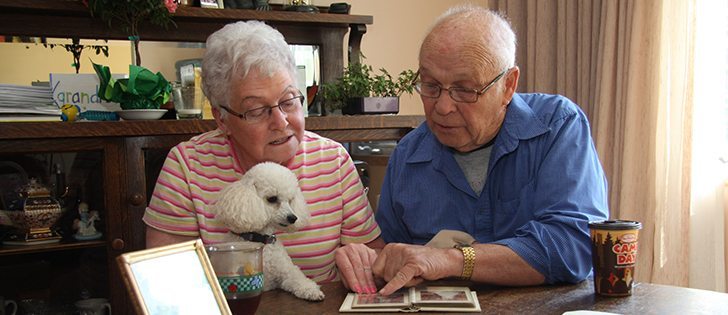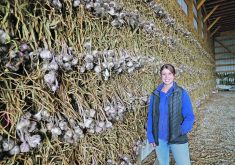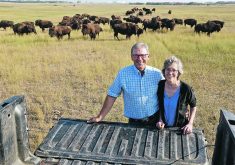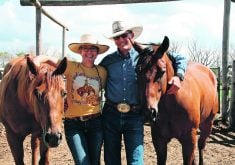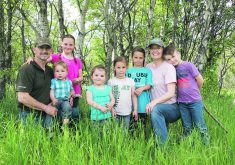Off-farm businesses, crop diversification | Son ventures into custom spraying, water hauling and drainage tile installation
PORTAGE LA PRAIRIE, Man. — An opulent Hotel Portage opened and $2 fines were awarded to two men “being too ardent on the bottle” when homesteaders John and Caroline (Waind) MacDonald relocated to their new farm from Portage Creek in 1906.
Today, Darren and Tricia MacDonald operate the family’s farm in southern Manitoba while balancing a number of related businesses.
“We’re pleased to see it has evolved and Darren has taken it on as the fourth generation,” said Darren’s father and John’s grandson, Waind MacDonald.
Read Also

Rural Manitoba resources slim on natural disaster planning
A study from Brandon University’s Rural Development Institute has found that many rural and small municipalities don’t have the staff or resources to make formal climate plans against natural disaster.
“Some young guys can’t keep it up or there’s not enough interest or not enough money.”
Waind and his wife, Vyra, live a short commute away in Portage la Prairie, while their daughter lives in Warren.
Waind helped his mother, Norma, farm in the years following his father death in 1956, with Darren joining the operation decades later after completing a diploma in agriculture at the University of Manitoba.
Vyra said the MacDonalds always kept up with the changing landscape and Darren is no exception, choosing diversification over expanding his 600 acre land base.
“Anything he puts his hand to, he makes go,” she said, citing his ability to work long days and seldom stop for meals.
Additions of custom spraying, water hauling, drainage tile installation and crop diversification in recent years are among ways the younger MacDonalds have made a living for them and their three sons, Brady, Josh and Quinn.
They are renovating the elder parents’ former farm home and are currently living in a refurbished church in High Bluff.
“There’s always things I see a market opportunity for and I’ve got lots of contact in neighbours and businesses,” said Darren.
He grew potatoes with a partner for 13 years but stopped in 2005, when he felt the business was changing and would have required a major investment to continue.
He noted changes in agriculture in Canada in his years of buying, selling and renting land.
“What people are spending on inputs in a year now, people were buying land for 30 years ago,” Darren said.
He hires out custom work for his edible beans, saying it doesn’t pay to own equipment for 300 acres. It’s also tough to compete with the oil patch for good farm labour.
Darren’s farm benefits by having specialized equipment available to support crops of winter and spring wheat.
“My land is all (tile) drained, we were first on the list,” he said.
Like Darren, Vyra and Waind also embraced changes and off-farm work.
“I was always in agreement it’s wonderful to have bigger tractors and equipment to make the job go easier,” Vyra said.
Her last job as a travel agent allowed the couple to take trips to far-flung destinations.
“I wanted to be out and doing something. I am not a person who could sit at home,” said Vyra, who also served as a figure skating judge and 4-H leader.
She juggled chores, scooting home to make meals after fieldwork.
Bigger machinery, more fertilizer and better weed control were advances witnessed by Waind, whose father, Cecil, was among the first to switch to gas power from horses.
“We had to wait till the first crop of weeds appeared,” he said. “We bought a half section for $47,000. We bought it for the price of a pick-up truck now.”
“My first (tractor) I thought was great but it was terrible,” he said of the hot, dusty, noisy machine.
The couple always knew Darren would take the farm into its second century.
“By eight, he was driving the grain truck and picking up in the field on the fly,” said Vyra.
Today, Waind helps the four farm hands and keeps busy with old vehicles like a 1966 Chrysler sedan and the 1948 Ford truck his father bought new.
He and Darren are both content with their career paths.
“It’s a good lifestyle, not working for anybody else or working inside,” Darren said.
Waind, who once drove the school bus in the winter, agrees.
“I could always make some money. I liked it,” he said.

